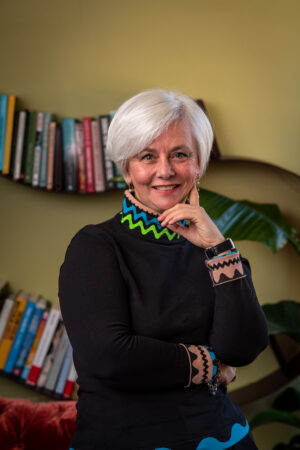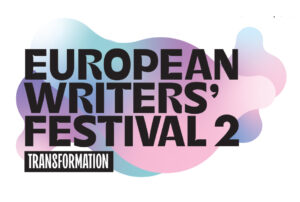Alyson Coombes answers some questions that aspiring literary translators often pose
Do I need a particular qualification to become a translator?
The short answer is no. Part of the beauty and richness of the field is that translators come from all different backgrounds and bring with them a wealth of knowledge and experience. However, you may need something on your CV to point to – just being bilingual (or having learned a second or third language) won’t necessarily set you apart from the competition. Publications of translations in online/print journals and magazines, competition wins, in-house industry experience or an established book blog, for example, can be very useful in this regard.
For German translators, being involved with New Books in German can be a great way to start – either by taking part in the internship or being a regular reader.
If you do wish to complete a qualification, a good option is the Chartered Institute of Linguists’ Diploma in Translation. Or if you want to do a specific literary translation qualification, the MA in Literary Translation at the University of East Anglia is very highly regarded.
Translators often talk about ‘networking’ and the importance of ‘being visible’ in the industry. What forums, websites or other channels can you suggest as a starting point for new translators looking to meet other translators?
Whatever your language combination, you should join the Emerging Translators Network (ETN). This forum contains countless threads and discussions covering every aspect of translation, from specific queries and pitches to work opportunities, contract advice, and upcoming literary and translation events. You can find out more and register at emergingtranslatorsnetwork.wordpress.com/.
Find out if there are networks or cultural organisations set up specifically for your source language(s). For German, the Goethe-Institut runs language courses, hosts events and has a library full of German books.
Twitter has a thriving writing and translation community, so consider joining if you haven’t already. Look out for reviews by book bloggers, recommendations by other translators and by publishers, booksellers etc. Of course, a lot of literary events will be publicised on social media too, so it’s a good way to find out about them.
What are the main events that you would suggest going to in the first instance?
The point of networking is to meet other translators who are working in your language pair as well as across the wider industry. It’s always good to know there will be familiar faces at translation events, and it’s useful to have contacts (and even friends – translators are lovely people!) to turn to if you have any questions. There are numerous translation events to look out for where you can meet your new colleagues:
- International Translation Day: This takes place annually around 30 September, in London.
- TA Symposium: Each year, just before the London Book Fair (usually March or April) the Translators Association (part of the Society of Authors) hosts a translation symposium with panel events, inspiring speakers and a drinks reception for networking.
- London Book Fair: This huge industry event can be overwhelming for newcomers, but the Literary Translation Centre organises a number of translation panel talks which can be very useful. The German stand also hosts a drinks reception for German publishers and translators, and there are usually drinks one evening for ETN members. Videos of past panels are all available to watch on YouTube.
- The Goethe-Institut and the Austrian Cultural Forum in London organise regular events so their websites are useful resources for German translators.
- The British Library and Free Word Centre also both host numerous literary events so it’s worth checking their websites to see what is coming up.
What other options are there for meeting new translators and boosting my confidence as a translator?
One of the best things you can do is take part in a literary translation summer school, as this will introduce you to other translators working to a similar level, as well as giving you the chance to be mentored by an established translator in your language combination or area of interest. Some grants are available to help with the costs of these programmes – see websites for details.
Mentorships are also a great way to meet established translators and get that all-important feedback and support, as well as the opportunity to benefit from your mentor’s expertise and contacts. The National Centre for Writing in Norwich runs a brilliant mentoring programme for emerging translators that was set up by Daniel Hahn.
What other things can I do at home/in my spare time?
Read widely in both your source and target languages. Make sure you know the markets in which you will be working, as this will help you get a feel for how a new book might fit into the existing publishing landscape and what other similar titles there are already, for example. Think about whether there is an area you are especially interested in (e.g. adult fiction, children’s/YA, non-fiction, crime) and read widely in both languages to deepen your understanding and knowledge of the genre. Go to bookshops and see what’s popular and what’s new.
Listen to podcasts (e.g. www.ontranslation.org/) that talk about literary translation. This can be a great way to get tips on various translation issues, such as how to tackle humour, dialect and idioms. You can also use podcasts to find out about other aspects of translation and publishing. For example, The Bookseller has a regular podcast, which can be a good way of finding out more about the industry as a whole.
Read books about the art of translation, as well as literary magazines and journals that focus on literary translation. A good place to start is In Other Words, which includes various articles on translation theory and practice, as well as write-ups of events such as International Translation Day and the translation panels at the London Book Fair. You can also find links to different world literature blogs here.
Read these guides from the American Literary Translation Association on breaking into literary translation.
Get lots of practice by translating things you love, just for pleasure. It can be useful to show your work to different people (those who speak your source language as well as those who don’t) and get feedback from readers. Once you are happy with your work, submit it to literary magazines and translation competitions (see below for more details). Translators need to be extremely close readers but also excellent writers in their own native language, so writing regularly will help you to keep honing these skills.
It’s also a good idea to familiarise yourself with the various literary prizes for translated fiction in the UK, as well as in your source language. This will help you keep track of some of the best literature in those categories today.
- UK examples: International Booker Prize, TA First Translation Prize, Oxford-Weidenfeld Translation Prize.
- German examples: German Book Prize, Deutscher Krimi Preis, Swiss Book Prize, Leipzig Book Fair Prize.
For translators from German, it’s worth remembering that there is brilliant literature coming out of Germany, Austria and Switzerland, so you should try and keep up with all three as much as you can. The three cultural organisations (Goethe-Institut, Austrian Cultural Form and the Swiss Arts Council Pro Helvetia) are all a good place to start for inspiration, through their various events and publications.
I’ve heard people talk a lot about ‘foreign rights’ and ‘rights directors’. What does this mean exactly and why is it relevant to me as a translator?
When a publisher in the UK or US wants to publish a book in English translation, they need to buy the translation rights in order to do so. With English-language literature, literary agents often hold the rights and publishers buy the rights from them. This can be the case too in German-language countries. However, there are far fewer literary agents and the rights are often handled by the foreign rights departments of German publishing houses. You need to know this because you cannot pitch a foreign book to a publisher without knowing if the English translation rights are available for the publisher to buy (or it’ll be a waste of everyone’s time, not least your own!).
It is therefore a good idea to get to know the rights teams at the German-language publishing houses that you are interested in, so you can email them and ask about the rights if you are interested in a particular book. They are very friendly people and will be more than happy to hear from you as a translator!
It is also usually the rights directors who commission translation samples of new books, which is a good way of getting more translation work and having your samples end up on the desks of UK/US editors. Bear in mind these aren’t always brilliantly paid and do not guarantee you will get to work on a full novel, but are a good place to start and can help you come across exciting books and new authors. NBG is a value resource for German translators in this respect as the contact details of the relevant rights departments are listed online.
How do I find books/authors to work with?
If you translate samples for foreign publishers (see above), this will bring you into contact with new books and authors who may not have been translated before. You can also do reader’s reports for UK/US publishers. These are not well paid for the time they take, but you will be sent a book to read and if you love it – and the publisher also loves it and acquires the rights – there’s always a chance that you might end up translating the novel. Being able to write a good reader’s report is a useful skill and this is a good way to make contacts and get on publishers’ radars.
Look at website or magazines which round up the best new books. This is a great way to keep track of trends, new authors, prizes etc. and you never know, you might find your dream project there.
Pro Helvetia also do their own annual round-up of new Swiss literature (by writers working in French, German, Italian and Romansh) called Translate Swiss Books.
Can I pitch books to UK/US publishers?
Yes, many editors do accept pitches directly from translators. There are often translation events dealing with pitches specifically, so look out for them for more details. As a general rule, your pitch should include a synopsis of the book, a translation sample (this must always be your best work, as any careless mistakes will probably put the editor right off), details of why you think the book would work in the UK/US market, the contact details of who holds the translation rights (and confirmation that the UK/US rights are still available) and perhaps some information on whether the project is eligible for a translation grant. Editors like to know you have researched their list in detail, so don’t just send an email to a group of people or ‘Dear Sir/Madam’ – it’s always best to address it to a specific editor and, if you can, say why you think they in particular would be the right fit for this book.
Note that although many publishers do accept pitches, editors will usually find the books they want to publish and approach translators, rather than the other way around. Some publishers will commission samples from two or more translators and pick the one they think finds the right voice, while others will use the translator who worked on the sample translation, if they like their work. Occasionally publishers will simply offer a project to an experienced translator with whom they have worked before, but if you have done a convincing sample and shown you are passionate about the project you should at least be considered for the job.
What do I need to know about translation grants and funding?
If you are pitching a project to publishers, it is useful to know if your project is eligible for funding so you can let publishers know when you send the pitch. As well as translation funding, these organisations sometimes provide support for promotional activities and events once the book is published.
- Germany: The Goethe-Institut funds translations from German of books by German authors. All such books featured in NBG are guaranteed funding, including non-fiction and children’s/YA.
- Austria: The Austrian Federal Ministry for Education, the Arts and Culture funds translations of fiction (but not non-fiction) from Austria, and funding for NBG-featured Austrian fiction is guaranteed.
- Switzerland: Pro Helvetia funds the translations of Swiss literature, and funding for Swiss literature featured in NBG is guaranteed.
There are various non-language-specific organisations that also offer grant programmes for publishers. These include:
There are some programmes, e.g. the PEN/Heim Translation Fund, which offer financial support to translators working on a particular project that hasn’t yet got a publisher in the UK/US. Application information is available on their website.
I’ve translated a short story/novel extract/essay. Where can I submit to?
There are many magazines and journals that publish short translations so it’s worth submitting to them. Some examples are: Words without Borders, Granta, Modern Poetry in Translation, The White Review and Asymptote.
A good German-specific online journal is No Man’s Land, which features translations of new German-language literature. Submissions guidelines can be found on their website. You can read in interview with the Editor of No Man’s Land here in our news section.
In all cases, it is sensible to email the foreign rights holder to check that the English translation rights are available and to request permission for publication should you be selected. They might be able to tell you if another translator is already ‘attached’ to the project, either having done a sample or already having worked with the author in the past (or simply having already registered their interest in the book with the rights holder). No one can really sell the rights with a specific translator in mind, as the translator will be selected by the UK/US publisher, but it’s worth knowing if another translator has also been working on the project as this can avoid too much disappointment further down the line.
What translation competitions are available to enter?
There is a comprehensive list of competitions, residencies and other opportunities for translators on the New Books in German website, but here are some of the key competitions for translators from German:
- Goethe-Institut Award for New Translation
- Austrian Cultural Forum London Translation Prize
- Geisteswissenschaften International Nonfiction Translation Prize (GINT)
For translators working from all languages, the biggest competitions include Asymptote’s Close Approximations, the John Dryden Translation Competition and the Harvill Secker Young Translators’ Prize.
What professional organisations can translators join?
The Translators Association (TA), which comes under the umbrella of the Society of Authors, is a great organisation for working literary translators. They organise events, have a forum for translators and also offer tax and contract advice for members, which is extremely useful and highly recommended.
The Institute of Translation and Interpreting (ITI) does not focus on literary translation but on translation and interpreting as a wider profession. They offer various services for members as well as networking events, training courses and have regional branches too, meaning that not everything happens in London.
What advice can you give on the practicalities of being a freelancer?
Working from home can be a lonely business, but remember that literary translation is not all about simply sitting at home working on your next project. Go to events, meet fellow freelancers and work in a café, read in a library – whatever you choose, make sure you get out of the house whenever you can! Being self-employed is great, but does also come with a fairly heavy administrative burden. Make sure you are registered with HMRC and are paying the correct tax, and keep track of all your expenses and receipts for your annual tax return.
People don’t tend to go into literary translation for the money, so do make sure you have another source of income at least while you’re still getting established. For many people this will be non-literary (e.g. academic or commercial) translation, but you could also do something different like working part-time in a bookshop or office.
Make business cards – very handy for those all-important networking events. Make sure you include your contact details, website/Twitter handle if appropriate, services offered and language combination. Many publishers will take your business card in case they need a translator in future, but if someone gives you their card and tells you to get in touch, do follow up as soon as possible so you reinforce your meeting in their mind.
Email is hugely important and is how most of the business functions, so always try and be available. Consider creating a website, even if it’s only one page with contact details and services offered, so that you can point people to it. You might want to consider adding a blog too, or featuring links to your work if you have translations published online.
How much should I charge for literary translation?
The Society of Authors says
“Remuneration is a matter for negotiation between you and the publisher. In our experience translators and publishers currently negotiate fees starting in the region of £95 per thousand words. The word count can apply to either the source or target language; just ensure you and the publisher agree.”
You can read their blog on negotiating pay here .
What happens if I do get offered a contract? Is there any support available?
As well as asking more experienced translators for advice (via the ETN, for example) the TA offers a contract vetting service for members that is extremely useful. They will read a contract carefully and give you advice on which bits might be problematic for you as the translator, and tell you where you might need to ask for changes to be made. Look out for contract advice events and panel discussions too, as these will give you a better idea of what a good contract looks like and what terms are acceptable or ideal for you as the translator.
Here are some additional links to good blogs and interviews with translators that will give you a deeper insight into life as a literary translator:
Translator Susan Bernofsky’s blog, including valuable tips on getting started: translationista.com/2017/08/tips-beginning-translators.html
Translator Katy Derbyshire’s blog: https://lovegermanbooks.blogspot.com/








